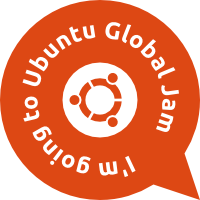We have an opportunity to introduce a mainstream TV audience to the great stuff that Linux can do in schools, but we need 25 Linux enthusiasts to commit to show up in order to accomplish it.
I just spoke with a program manager for a TV show called ABC 7 Live. They are interested in having supporters of Linux in schools (and particularly Partimus.org) attend a show. The show airs daily from 3 pm to 4 pm. I need a list of 25 people who will attend. I need the list by Thursday, 12/9/10 at 3 pm. You must be on the list to be admitted to the studio. I am coordinating the list, so please be sure to email me to get on the list. You can email me at einfeldt a t gmail dot com. You can watch shows from the archive here
They have had famous people like Mark Zuckerberg on this show.
The show features a host, Brian Copeland, with his two co-hosts, Elizabeth Bermuda and Jennifer Jolly. Jennifer Jolly was an anchor on another ABC show.
During the show, the hosts will be chatting about technology and non-profits, and they will ask questions of 10 people in a portion of the audience called the Voice Box. Apparently, the Voice Box is situated just to the left of the hosts, and the hosts will talk with them occasionally. Apparently, there will time for numerous sound bites from the audience, say 5 to 10 seconds in length. It is not a lot of time for speeches, but it is time for several one-liners from the audience in response to questions from the hosts. Audience members are also allowed to boo and to clapp.
Again, the focus of this show will be technology and non-profits, and so the hosts will be asking us substantive questions that call for brief, snappy, on-point responses. My impression is that this is a serious opportunity for us to present Partimus to a Bay Area audience.
We need 25 people to come to the Jackson Square district of San Francisco at Front and Pacific on Monday, December 13, 2010. The Voice Box section of the audience can hold 10 people, and 2 people unrelated to Partimus have aleady signed up to be on that show. During a break in the show, the hosts will rotate people out of the Voice Box so that others can rotate into the Voice Box and participate in the show. Even if you don’t want to get into the Voice Box, this is an opportunity to support Partimus and Linux by showing up and cheering and making noise when Partimus or Linux is mentioned. They want a lively show, so enthusiasm will definitely help.

